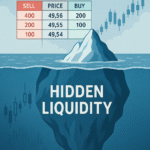Latest posts
-
Routing mechanisms

Routing is important for markets that have a range of execution venues. When choosing where to send orders, many different factor should be analyzed. Routing mechanisms constantly make these decisions, based on the available data, to try to ensure orders are sent to the optimal destination. As we saw for liquidity based trading algorithms, a…
-
What is Hidden Liquidity?

Research’s results on the robustness of information efficiency and liquidity regimes regarding opacity have important regulatory implications for debates on dark trading. Furthermore, opacity appears to increase the profits of informed traders, but only when their private information is of high quality and rapidity. What is Hidden Liquidity? Hidden liquidity refers to buy or sell…
-
Collateralized Loan Obligations (CLOs)

Collateralized Loan Obligations (CLOs) represent a complex financial instrument that is gaining increasing attention in the investment landscape. This instrument indeed has specific characteristics that can be advantageous within a well-diversified portfolio.CLOs are financial instruments constructed from many bank loans put together. In practice, companies collect a group of loans made to businesses and transform…
-
Timing risk with transaction cost

Mr Kissell and Mr Glantz use timing risk to represent the uncertainty of the transaction cost estimate. The two main sources of uncertainty are volatility of both the asset’s price and of the trade volume but there are also other factor like spread risk especially if we are in fast market like in the last…
-
The environmental markets

THE ENVIRONMENTAL MARKETS The emergence of exchanges like GIX is part of a broader context related to environmental markets. Environmental commodities are tradable goods that represent a specific environmental benefit, such as carbon credits or renewable energy certificates (RECs). These commodities are fundamental tools for companies seeking to achieve sustainability goals, reduce carbon footprints, or…
-
Yield to worst
THE DEFINITION OF YTW: WHAT IS IT? The Yield to Worst (YTW) is the minimum potential return that an investor can receive on a bond without the issuer defaulting. It considers scenarios where the issuer might redeem the bond early, for example, through a call provision (Yield to Call – YTC). It is the lower…